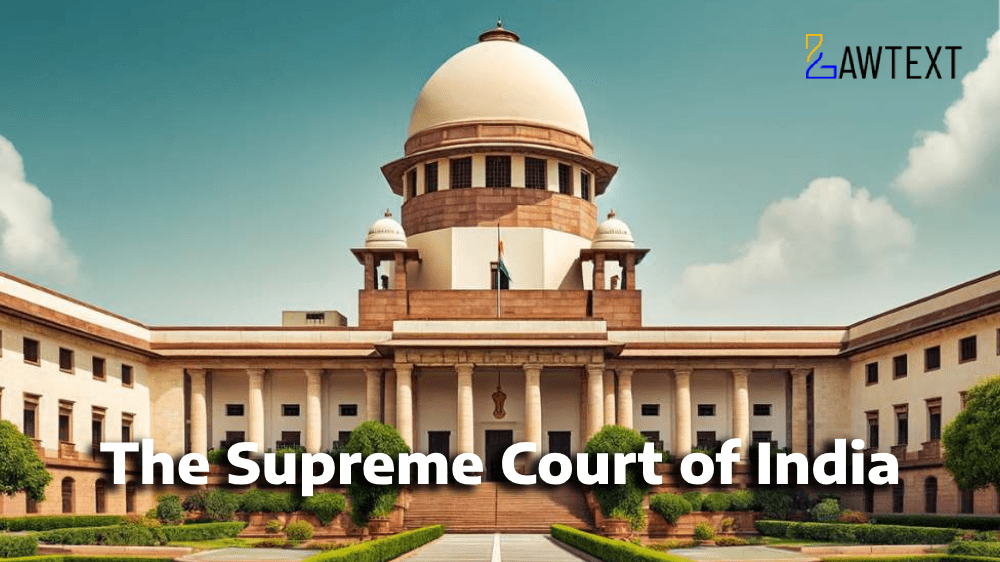Dispute on Compensation for Land and Improvements Settled by the Supreme Court. The Supreme Court upholds the High Court’s ruling, denying additional compensation for awala trees and borewell, citing inadmissible evidence and improper use of review jurisdiction.

CASE NOTE & SUMMARY
Acts and Sections Discussed:
- Land Acquisition Act, 1894:
- Section 4: Initiation of land acquisition.
- Section 18: Reference for enhanced compensation.
- Section 54: Appeal against award decision.
-
Background of the Case (Para 2-4):
- The appeal is against a High Court judgment allowing the respondent’s appeal and dismissing the appellant’s cross objections.
- Controversy involves fair compensation for acquired land, trees, and a borewell owned by the appellant in Yavatmal, Maharashtra, acquired for Vidarbha Irrigation Development Corporation by the State of Maharashtra.
-
Initial Award and Dissatisfaction (Para 4-6):
- The Land Acquisition Officer (LAO) awarded compensation for the lands but did not consider the borewell and certain fruit trees. The appellant sought additional compensation, which was partially awarded but later questioned.
-
High Court Appeal and Cross Objection (Para 8):
- The respondent appealed the award on compensation granted for the awala trees and borewell, arguing it was beyond the scope of the review. The High Court ruled the award of compensation for these items illegal, modifying the award.
-
Arguments (Para 9-11):
- Appellant’s Argument: Asserted cumulative 10% increase in compensation per year and claimed unaddressed compensation for additional trees.
- Respondent’s Argument: Argued the High Court appropriately rejected the cumulative increase, pointing out that evidence did not substantiate the existence of certain trees or borewell before the acquisition.
-
Supreme Court’s Analysis on Trees and Borewell Compensation (Para 12-15):
- The court found the reference court erroneously awarded compensation in a review process based on inadmissible evidence (2nd JMR), deeming the High Court’s setting aside of such compensation correct.
-
Determination of Market Value and 10% Increment (Para 18-19):
- Relying on an earlier judgment (Exh.68), the court supported the 10% annual increase without compounding. The court clarified that cumulative increase is discretionary and was rightly omitted here.
-
Conclusion (Para 20):
- Supreme Court dismissed the appeal, affirming the High Court’s judgment without costs, and closed any pending applications.
Ratio Decidendi:
The court emphasized that admissible evidence and proper jurisdictional boundaries must guide compensation reviews. Compensation determinations should not rely on unsubstantiated documents or be expanded beyond the original adjudicated scope in a review. Cumulative increase in land value is not mandatory and should follow precedent where applicable.
Subjects:
Land Acquisition, Compensation, Land Valuation, Trees and Borewell Compensation, High Court Review, Supreme Court Judgment
ISSUE OF CONSIDERATION
MANIK PANJABRAO KALMEGH VERSUS EXECUTIVE ENGINEER BEMBLA PROJECT DIVISION YAVATMAL & ORS.
Citation: 2024 LawText (SC) (11) 61
Case Number: CIVIL APPEAL Nos. OF 2024 (Arising out of SLP (C) Nos. 4494-95 of 2023)
Date of Decision: 2024-11-06
Case Title: MANIK PANJABRAO KALMEGH VERSUS EXECUTIVE ENGINEER BEMBLA PROJECT DIVISION YAVATMAL & ORS.
Before Judge: (PANKAJ MITHAL J. , R. MAHADEVAN J.)
Appellant: MANIK PANJABRAO KALMEGH
Respondent: EXECUTIVE ENGINEER BEMBLA PROJECT DIVISION YAVATMAL & ORS.

